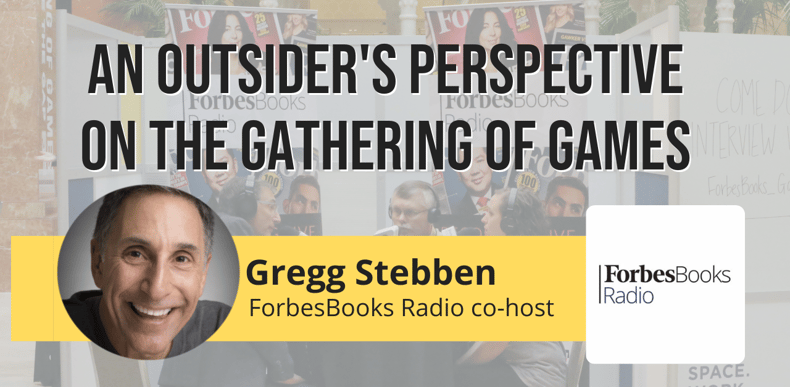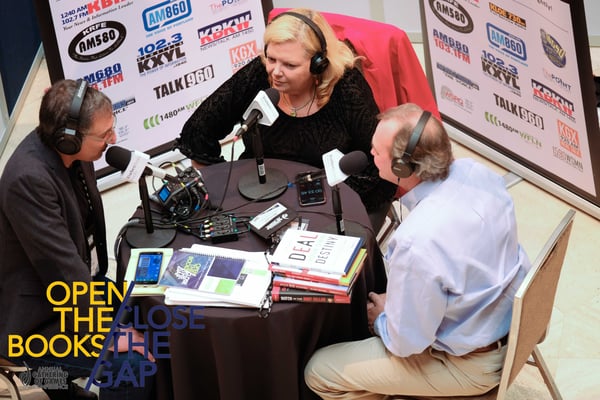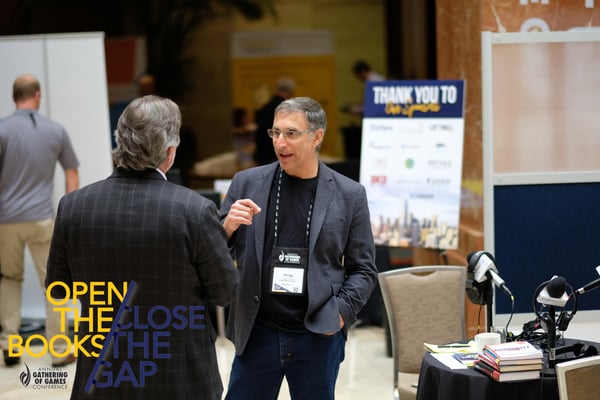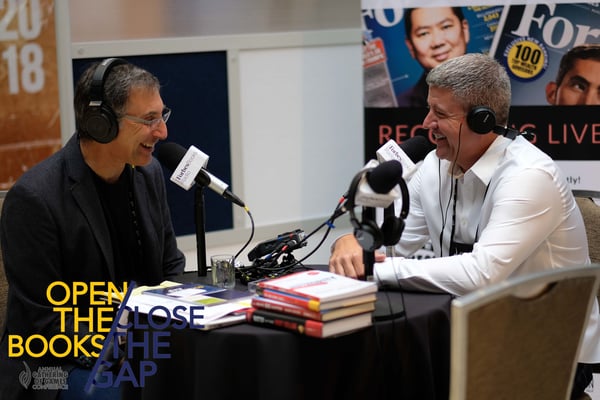
I had the privilege of attending my first Gathering of Games conference this year, as a representative from ForbesBooks and ForbesBooks Radio. I’ve been to my share of business conferences, but Gathering of Games was unlike any I’d attended in the course of my career. It was thrilling to record interviews with so many of you and hear your stories in depth. As an “outsider,” there were a few takeaways from the conference that truly resonated with me:
It's People - Impact far more people than just “your” people.
If you attended the Gathering this year, you must have heard the phrase, "It's money, it's people, it's both." As I learned about GGOB, I quickly began to imagine the exciting and transformative impact of teaching your entire team about business. Giving them access to the financials, rallying them around a common goal, making sure they know how they personally impact the bottom line—it all serves to give them skin in the game and it is in full alignment with what we do with our Team Members at ForbesBooks.
Then I began ruminating on how the impact of GGOB extends to an even greater number of people:
- The spouses and partners of your team members, who now have a relationship with someone much happier, more satisfied, more engaged, and enriched at work.
- The children of your team members, who not only have a happier parent but potentially a more promising future — as their parent now serves as better role model in the realm of work and careers.
- The friendsof your team members, who begin aspiring more for themselves, as they see how GGOB has impacted their friends.
- Others within your community, as they see the profound impact of GGOB on your business and team. They envision that same positive impact at play in their own workplace.
- Your clients, suppliers, and other companiesin your industry. Surely, they see what’s happening within your company and want to craft a similarly impactful company culture.

Michael Kiolbassa from Kiolbassa Smoked Meats in San Antonio, TX being interviewed by Gregg Stebben and Kate Delaney.
Did GGOB invent the “sharing economy” in 1983?
I spent a lot of time at the Gathering reflecting on the meaning of the words, “share” and “shares.”
You can have “shares” in an investment context: shares of stock, shares in a company, etc.
And you can also “share” something with others: some food, a post on Facebook, your opinion when you write a review.
Of course, GGOB companies share in myriad ways: sharing ownership, sharing information by giving access to the books, and sharing in all the joy and excitement that comes with shared accountability and responsibility.
“Sharing” has emerged as such a potent force in our world that the term “sharing economy” is often used to characterize the modern economic landscape. Heavyweight companies like Airbnb (in which one shares their home), Uber and Lyft (in which one shares their car), and WeWork (in which one shares their work space) speak to the power and prevalence of the newfound sharing economy.
Of note, PwC estimates that global “sharing economy” revenue will grow from $15 billion in 2014 to $335 billion by 2025*. Just a few months ago, the World Economic Forum posited the notion that “the sharing economy could help end poverty.”**
The more I learned about GGOB during the Gathering, the more I wondered: could we date the start of the “sharing economy” to the inception of GGOB in 1983, rather than Airbnb in 2008 and Uber in 2009?
There’s a lot more to ownership than just owning shares.
To see how a culture of ownership can grow, just observe how people use the apps on their phones:
- When we love a restaurant, we jump to write a review on Yelp. This gives us a feeling of ownership.
- When we see something we love on Facebook, Twitter, or Instagram, we’re compelled to share it with others. This, too, gives us a feeling of ownership.
- When we adore someone’s brilliant idea, we support it by helping to fund a Kickstarter campaign. This endows us with a feeling of ownership.
What we have here, at its very core, is the principle of patronage. Patronage makes you feel like you have a stake of ownership in something you consume, endorse, or share with others—precisely because you consume, endorse, or share it. Like a “patron of the arts,” empower your employees to become patrons of your business.

My opinion: “Ten Million People in Ten Years” is well within your reach.
The single most inspiring thing I heard at the Gathering? The sound of your voices, passionately sharing (there’s that word again!) your stories, insights, and successes as a result of working with GGOB.
As the number of GGOB companies grows, the army of GGOB evangelists grows, helping you inch closer to that exciting figure of transforming the lives of Ten Million People in 10 Years. Sharing your success story is elemental to that outcome, as you empower others with the value of what you’ve learned in your career. Sharing stories, in many ways, is a natural instinct, but some feel they need permission to share it, or want validation of its worthiness before they share.
Meanwhile, nothing brings us closer together or helps us see new perspective more than when we share our stories. When you encourage everyone on your team to share their stories about GGOB, you not only grow your army of evangelists, but team members will continue to deepen their relationship with the rest of the team, the mission, and the company, with each time that story is shared.
Collecting tales of the tremendous success of GGOB advocates is why we at ForbesBooks attended the Gathering this year: so we could hear and record your stories, and then share them with the world through ForbesBooks Radio.

Interview with Shawn Burcham, Founder and CEO at Pro Food Systems, Inc.
Other Articles You Might Like:
.png)








.png)




-5.png)
.png)
